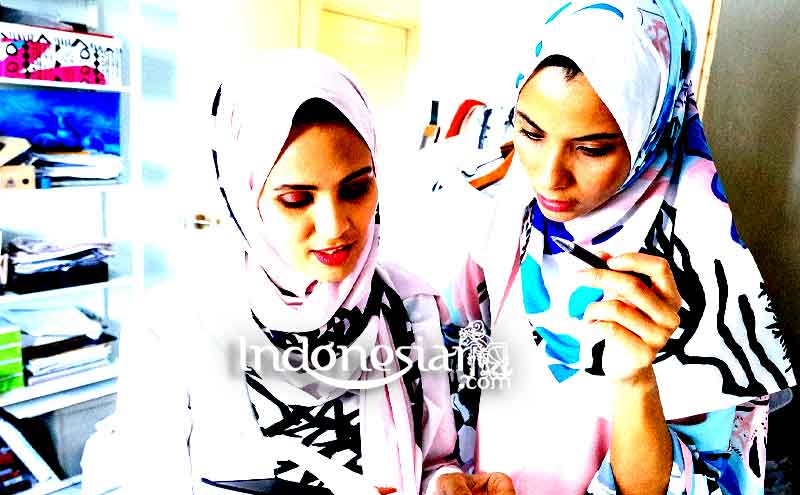News & Events
Alhamdulillah, Every Day 10 Catholics in Colombia Convert to Islam
- September 30, 2020
- Posted by: ASEAN
- Category: Budaya Amerika Latin

The existence of Islam in Colombia cannot be separated from the arrival of Arab immigrants from Syria, Lebanon and Palestine from the early 19th century to the 20th century.
Reporting from Arab News, a large influx of Middle Eastern immigrants arrived in Colombia in the 1940s. They make a permanent home in the city of Maicao, northern Colombia.
Most of them are Muslims. Their trading activity in the city is especially fast growing. They are also active in Venezuela’s gold mines adjacent to Colombia. No less than 840 thousand immigrants from Lebanon currently live in Colombia.
Apart from Middle Eastern descent, there are also Indo-Pakistani Muslims and natives of Colombia. Everything is mingled in everyday life. They socialize, work together and work together.
A paper published by Florida International University researcher Diego Castellanos explains that the first Muslims to arrive in Colombia were Arab immigrants who fled the political repression of the Ottoman government in the late 19th century.
Since then, the Muslim community has gone through different phases of growth and diversification. Sometimes supported by the arrival of new immigrant communities, such as the large number of Lebanese who left their home countries in 1960-1970 and settled in Colombia. Most of them live along the Caribbean coast. They became known for their Arab influence and culture.
The construction of mosques is part of the history of Bogota, Colombia’s largest city, and the urban Muslim population has grown over the past four decades. Built 16 years ago, the mosque in the northern city of Maicao is the second largest in South America.
However, the development of Muslims cannot be separated from the conflict in this country. Tensions exist between Colombia’s Muslim minority and adherents of other religions. This tension has come in recent years after a growing number of Colombians have converted to Islam.
According to Castellanos, the growth of Muslims began slowly in the 1980s. They are active in various professions and communicate well so that they invite sympathy from many parties. The number of Muslims in Colombia is now second only to the Middle East and North Africa.
Estimates of the total number of Muslims in Colombia vary from as little as 10,000 to 15,000. There are also those who claim 40 thousand or 80 thousand people. The number refers to several sources, both research and news.
Most of them are in Bogota, Maivao and Buena Ventura. Islamic centers are scattered in various cities, such as San Andres, Nanno, Santa Marta, and Cartagena.
According to Muslim Community leader Medellin Ahmed Dasuki, Muslims have great respect and tolerance for Colombian society and culture. This means that while not taking part in the Christian tradition in Colombia, they do not want to change the behavior of the majority of the non-Muslim population. They also don’t want to convince them to embrace Islam. Instead, people have to find their own path to Islam.
“If you want to become a convert, that’s fine. If you don’t want to, that’s also fine. The mosque is open to anyone who can come whenever and as often as he / she wants. We can only teach Muslim traditions to people who come to study Islam. “
Islam is based on the concept of dialogue and coexistence which means, for example, that although alcohol consumption is strictly prohibited, Muslims should not try to prevent others from drinking it. Islam, he explained, has great respect for its monotheistic relatives, Christians and Jews. Both of them are active in socialization in Colombia.
Dasuki acknowledged that it is difficult for Muslims to live in the midst of the domination of other religions in Colombia. The main difficulty is finding an Islamic environment to raise children. This kind of environment is needed to instill the value of tawhid as early as possible. So, these children know and understand the concept of god as early as possible.
“We live in a very difficult society, with all the clubs, debauchery and casual sex that is completely prohibited in Islam,” said Dasuki, as reported by Colombia Reports.
In the end, Dasuki believed, the Koran did not oblige other religions to comply with its practices. However, he said, Muslim parents hope to instill traditional values in their children. In their interest and not out of obligation.
Muslim parents hope their children can grow up as a generation of devout Muslims who uphold Islamic values. They will later be able to teach their descendants about monotheism and various Islamic traditions that have been developed since the era of the Prophet.
Although there are no official figures for the number of people who have converted to Islam in all of Colombia, converts to Islam are believed to represent a large proportion of the urban Muslim community. Imams estimate that they form at least 90 percent of the Muslim community in Medellin.
Meanwhile, the Muslim community in Bogota claims that there are 10 Christians who convert to Islam every day, as quoted by the national newspaper El Espectador in July 2013.
Dasuki felt that the main reason why people converted to Islam was because they were looking for a good path to spiritual enlightenment and a healthy lifestyle.
Islam, which prohibits the consumption of alcohol and free sex, makes its adherents stand out and inspires local people who are aware and understand the importance of building a healthy generation and family.
Source : Republika
Leave a Reply Cancel reply
You must be logged in to post a comment.